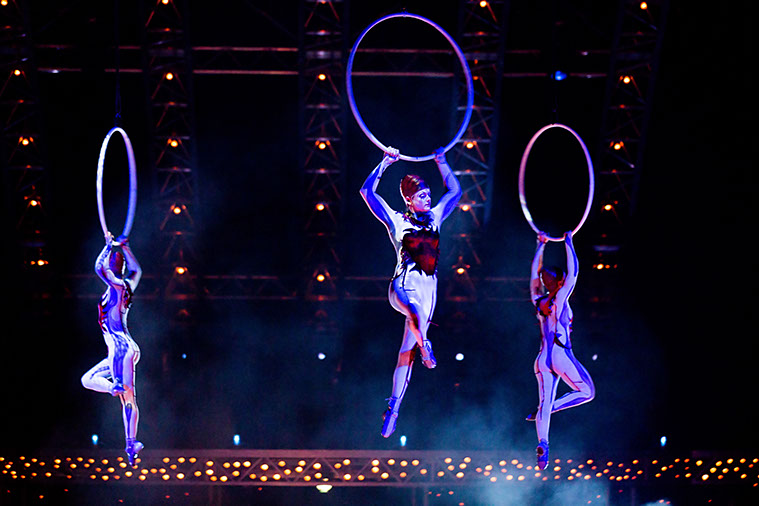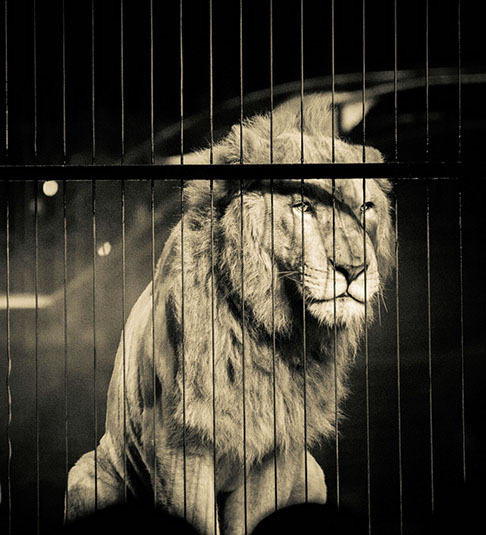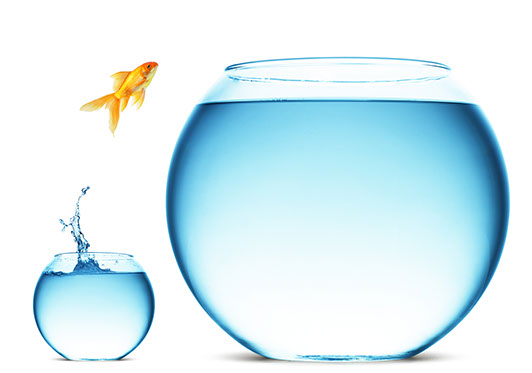By Chloe Hill
If no one took risks, new ideas would never have a chance blossom, businesses would conform to one another, and products would look and function in virtually the same way. Youngme Moon complains in her book “Different: Escaping the Competitive Herd” that this is essentially what is happening in the marketplace.
In trying to compete with one another in their respective markets, companies rely too much on market research and trying to match their competitors. A herd‐like mentality is the result: when one company does something, another company follows suit with a similar proposition. What happens is that products end up doing a lot of the same things but no single thing well, and an environment is created that discourages outliers and experimenters. They resort to relentless augmentation to differentiate their business proposition and product. She gives the example of Starbucks offering breakfast foods and McDonalds offering café drinks. This isn’t to say that businesses should completely ignore what their competitors are doing but blindly matching the competition benefits no one.
You wouldn’t want your orthopedist performing your heart surgery, right? Likewise, would you really want to go to McDonalds for a good cappuccino?
Another unfortunate outcome of business competition is hyper‐segmentation. The marketplace contains a growing number of alternatives in a product category but upon closer inspection the differences are barely perceptible and lose their meaning.
The next time you go to a convenience store, take a look in the bottled water section of the refrigerator aisle. Does it really matter if you’re drinking water from an aquifer in Iceland or an artesian spring in Tahiti? A product category that is hyper‐segmented has reached a stage in its evolution of “hyper‐maturity” in which change happens quickly and indiscriminately and all discipline within the category is lost. To be honest I’m fine with water from the tap in my kitchen – it’s free, I don’t have to feel guilty adding another plastic bottle into the waste system and I’m still pretty healthy.
Because of these factors , most companies are not offering something truly new and unique and customers experience what Moon terms “category blur”.
However, there are successful companies and products that are outliers offering unique business propositions. These companies are like a breath of fresh air. They took some risks and were brave enough to offer a product or service that to some may have seemed crazy and impractical at first, because it was so different from what everyone else was offering. However, customers recognized the merit in their offering and it really struck a chord with people.
For example, JetBlue offered a discount price and unexpected frills like spacious seating and legroom, free snacks and personalized video screens with satellite TV – amenities that were unheard of in the early 2000s when the company emerged. They were able to do this by cutting costs elsewhere – no free meals, no first or business class seating and flying out of less trafficked airports. Spacious seating (at least more than other airlines) and legroom alone has won me over as a customer!
Cirque du Soleil reinvented the idea of the traditional circus. They removed the animal acts, spectacle, and tacky trappings that people associated with the circus and instead focused on human skill including a combination of dance, theater, music and gymnastics with whimsical and chic sets and costumes.
Many people thought that if the animal acts were removed no one would buy tickets to a circus like show. Cirque du Soleil proved them wrong. Their modern rendition of the “Big Top” demonstrated that the circus could be a high art form therefore changing the public’s perception of what a circus could be and people flocked to the show.
This isn’t to say that every wacky and unusual idea has merit and should be pursued. Yet the success of Jet Blue and Cirque du Soleil demonstrates that more risks should be taken and more ideas should be given a chance to breath. Otherwise, innovative and creative solutions to problems will be overlooked and everyone misses out. As we face larger problems in society such as climate change, poverty, the list goes on and on, outliers and experimenters are crucial.
Taking calculated risks and being open to new ideas is a strong philosophy within the Hypnap team. If we’re not taking some chances and being open, we may miss an opportunity for something great to happen.
No product similar to the Hypnap TruRest exists on the market. Resting in the supported forward leaning position is a new approach. Some might be skeptical and that’s OK. The point is that we are trying to approach a common problem in a new way and taking the risk of testing it in the market. We strive to create something meaningful and we are excited by new ideas. We are grateful to be working with a great team of people and for the opportunity to bring a completely different solution to the market.
“Great ideas, novel ideas, original ideas…are tenuous at birth. And the reason for this is that, early on, they are often indistinguishable from crazy, impractical ideas. This is why…if we want innovation to happen, we need to suspend our disbelief enough to let it happen.” Youngme Moon




